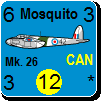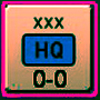Capt. Harlock
Posts: 5358
Joined: 9/15/2001
From: Los Angeles
Status: offline

|
150 Years Ago Today:
At Perryville, Kentucky, Union commander Buell was unhappy with his position, and decided to postpone his attack until the 9th. This gave Confederate commander Bragg the opportunity to get in the first punch. Bragg should have been badly outmatched, but he faced only a little over one-third of the Union army. Because of the trick of "acoustic shadow", the Northern general heard no firing, and did not even realize that a major battle was underway until mid-afternoon. But the men on the firing lines knew all too well.
Private Sam Watkins, who penned perhaps the most famous memoirs of any Southern infantryman, would write:
I was in every battle, skirmish and march that was made by the First Tennessee Regiment during the war, and I do not remember of a harder contest and more evenly fought battle than that of Perryville. If it had been two men wrestling, it would have been called a "dog fall." Both sides claim the victory—both whipped.
I stood picket in Perryville the night before the battle—a Yankee on one side of the street, and I on the other. We got very friendly during the night, and made a raid on a citizen's pantry, where we captured a bucket of honey, a pitcher of sweet milk, and three or four biscuits. The old citizen was not at home—he and his whole household had gone visiting, I believe. In fact, I think all of the citizens of Perryville were taken with a sudden notion of promiscuous visiting about this time...
At length the morning dawned. Our line was drawn up on one side of Perryville, the Yankee army on the other. The two enemies that were soon to meet in deadly embrace seemed to be eyeing each other. The blue coats lined the hillside in plain view. You could count the number of their regiments by the number of their flags. We could see the huge war dogs frowning at us, ready at any moment to belch forth their fire and smoke, and hurl their thunderbolts of iron and death in our very midst.
I wondered why the fighting did not begin. Never on earth were our troops more eager for the engagement to open. The Yankees commenced to march toward their left, and we marched almost parallel to our right...
About 12 o'clock, while we were marching through a corn-field, in which the corn had been shocked, they opened their war dogs upon us. . . The battle now opened in earnest, and from one end of the line to the other seemed to be a solid sheet of blazing smoke and fire. Our regiment crossed a stream, being preceded by Wharton's Texas Rangers, and we were ordered to attack at once with vigor. Here General Maney's horse was shot. From this moment the battle was a mortal struggle. Two lines of battle confronted us. We killed almost everyone in the first line, and were soon charging over the second, when right in our immediate front was their third and main line of battle, from which four Napoleon guns poured their deadly fire.
We did not recoil, but our line was fairly hurled back by the leaden hail that was poured into our very faces. Eight color-bearers were killed at one discharge of their cannon. We were right up among the very wheels of their Napoleon guns. It was death to retreat now to either side. Our Lieutenant-Colonel, Patterson, halloed to charge and take their guns, and we were soon in a hand-to-hand fight—every man for himself—using the butts of our guns and bayonets. One side would waver and fall back a few yards, and would rally, when the other side would fall back, leaving the four Napoleon guns; and yet the battle raged. Such obstinate fighting I never had seen before or since. The guns were discharged so rapidly that it seemed the earth itself was in a volcanic uproar. The iron storm passed through our ranks, mangling and tearing men to pieces. The very air seemed full of stifling smoke and fire, which seemed the very pit of hell, peopled by contending demons.
Our men were dead and dying right in the very midst of this grand havoc of battle. It was a life to life and death to death grapple. The sun was poised above us, a great red ball, sinking slowly in the west, yet the scene of battle and carnage continued. I cannot describe it. The mantle of night fell upon the scene. I do not know which side whipped, but I know that I helped bring off those four Napoleon guns that night...
The battle of Perryville presented a strange scene. The dead, dying, and wounded of both armies, Confederate and Federal, were blended in inextricable confusion. Now and then a cluster of dead Yankees and close by a cluster of dead Rebels. It was like the Englishman's grog—'alf and 'alf. Now, if you wish, kind reader, to find out how many were killed and wounded, I refer you to the histories.
The Union losses totaled 4,276 (894 killed, 2,911 wounded, 471 captured/missing) while the Confederate losses were 3,401 (532 killed 2,641 wounded 228 captured/missing).
Bragg's Confederates had won a tactical victory, inflicting more casualties on the Federals than they sustained, and gaining ground. But scouts and cavalry had discovered just how badly they were outnumbered; the Northerners still had over 50,000 men to only 13,000 effectives left for the Southerners. That night Bragg decided to retreat. He would eventually have to withdraw from Kentucky entirely, and the third part of the only strategically coordinated Confederate offensive of the war had been stopped.
|
 Printable Version
Printable Version



























 New Messages
New Messages No New Messages
No New Messages Hot Topic w/ New Messages
Hot Topic w/ New Messages Hot Topic w/o New Messages
Hot Topic w/o New Messages Locked w/ New Messages
Locked w/ New Messages Locked w/o New Messages
Locked w/o New Messages Post New Thread
Post New Thread